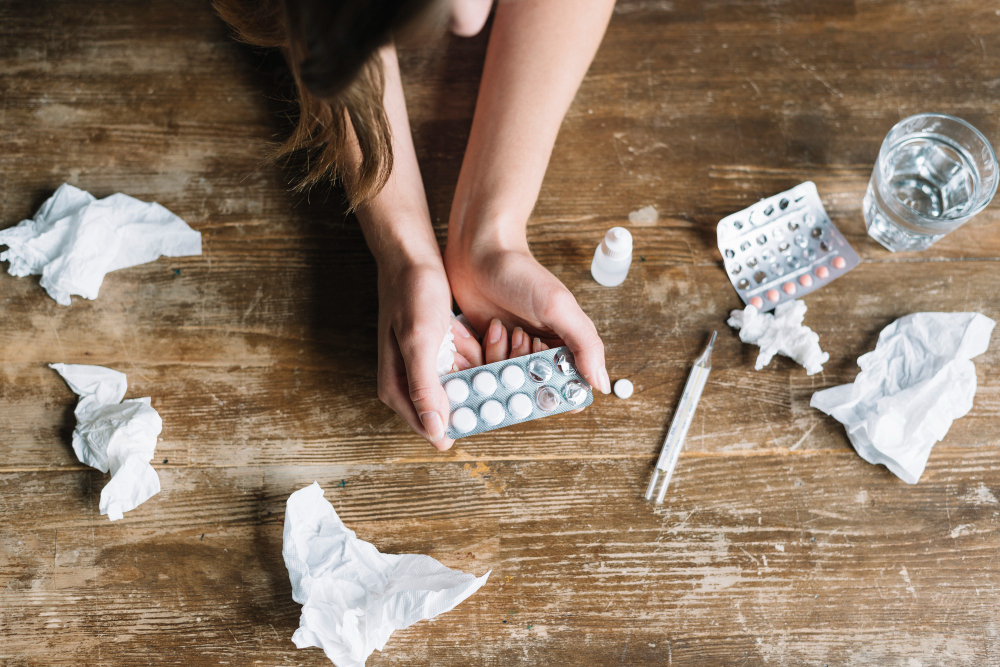Prescription medications are vital for treating various health conditions, but they can also be addictive if not used properly. Addiction to prescription drugs is a growing issue, affecting individuals of all ages. Knowing how to use medications safely and responsibly is key to preventing addiction.
This article offers practical tips on how to avoid prescription drug addiction, including warning signs to watch out for. If you or someone you know is struggling with prescription drug abuse, Nasha Mukti Kendra in Chandigarh offers professional support and rehabilitation services.
What Is Prescription Drug Addiction?
Prescription drug addiction occurs when a person becomes physically or emotionally dependent on a prescribed medication. Medications such as opioids, benzodiazepines, and stimulants are commonly misused because of their addictive properties.
Opioids, often prescribed for pain, can create a sense of euphoria, while benzodiazepines, prescribed for anxiety or sleep disorders, can cause sedation. Stimulants, commonly prescribed for ADHD, can lead to increased energy and alertness. The effects of these medications can make them easy to misuse, leading to addiction.
Ways to Avoid Prescription Drug Addiction
Prescription medications can be beneficial, but they also require responsible use. Below are steps you can take to avoid becoming dependent on prescription drugs.
1. Follow Your Doctor’s Instructions Carefully
Always take your medication exactly as prescribed. This includes following the dosage and duration recommended by your healthcare provider. Never adjust your dose without consulting your doctor first. Taking too much of a medication or using it for too long increases the risk of addiction.
If you feel the medication isn’t working as expected, talk to your doctor before making any changes. Self-medicating can lead to dependency and other health risks.
2. Understand the Risks of Your Medication
Ask your healthcare provider about the potential risks associated with your medication. Some drugs, like opioids and benzodiazepines, are known to be highly addictive. Understanding the side effects and risks will help you stay informed and cautious.
Being aware of these risks will also allow you to ask your doctor about alternatives or shorter treatment durations to minimize your exposure to addictive substances.
3. Don’t Share Your Prescription
Never share your medications with others, even if they appear to have the same symptoms as you. Medications are prescribed based on individual health conditions and needs, and sharing them can put others at risk of addiction or health complications.
Similarly, avoid using someone else’s prescription medication, as it can lead to serious health risks and increase the likelihood of addiction.
4. Track Your Medication Use
Maintaining a medication journal can help you stay organized and ensure that you’re taking the medication as prescribed. Record when and how much of the medication you take each day. This can help you identify patterns of misuse or dependence early on.
Tracking your usage also allows you to monitor any side effects or cravings that could signal the onset of addiction. If you notice any red flags, consult your doctor right away.
5. Store Medications Securely
To prevent misuse by others, always store your medications in a safe place, away from children, teens, and anyone who may be tempted to misuse them. A locked cabinet or a secure drawer is the best option for storing medications, especially if they have a high potential for addiction.
Proper storage can prevent accidental misuse by family members or friends who may be unaware of the risks associated with certain drugs.
6. Regularly Review Your Medication Plan with Your Doctor
It’s important to have regular check-ups with your doctor to evaluate whether you still need the medication. Over time, you may be able to reduce your dosage or transition to non-addictive alternatives. This is especially important for medications with a high risk of dependency, such as opioids and benzodiazepines.
Your doctor can help you find alternative treatments, such as physical therapy for pain management or behavioral therapies for anxiety, which do not carry the same addiction risks.
Signs of Prescription Drug Addiction
Recognizing the signs of prescription drug addiction early on can make a significant difference in preventing a full-blown dependency. Below are common signs that may indicate a problem:
Physical Signs:
- Needing higher doses to achieve the same effect (developing tolerance)
- Experiencing withdrawal symptoms when not taking the medication
- Feeling drowsy, dizzy, or confused more frequently than before
Behavioral Signs:
- Taking the medication for reasons other than its intended use (e.g., to relieve stress or improve mood)
- Doctor shopping or visiting multiple healthcare providers to obtain more prescriptions
- Neglecting personal responsibilities and relationships due to the focus on obtaining and using the medication
If you notice these signs in yourself or a loved one, it’s essential to seek help as soon as possible. Nasha Mukti Kendra in Chandigarh offers professional treatment programs to help individuals overcome prescription drug addiction.
How Nasha Mukti Kendra in Chandigarh Can Help
If you or someone you know is struggling with addiction, Nasha Mukti Kendra in Chandigarh provides comprehensive rehabilitation services to help individuals recover from prescription drug dependency.
1. Personalized Treatment Plans
At Nasha Mukti Kendra in Chandigarh, each individual undergoes a complete assessment to determine the severity of their addiction. This allows the center to create personalized treatment plans that address the specific needs of the patient.
2. Counseling and Behavioral Therapy
Counseling and behavioral therapies are key components of addiction recovery. Patients receive one-on-one therapy and participate in group sessions to help them understand the root causes of their addiction. The goal is to equip individuals with coping strategies to prevent relapse.
3. Long-term Support
Recovery is a long-term process, and ongoing support is crucial for maintaining sobriety. Nasha Mukti Kendra in Chandigarh offers aftercare services, including support groups and follow-up therapy, to ensure that patients have the resources they need to stay drug-free.
Conclusion
Prescription drugs can be beneficial for treating medical conditions, but they come with risks if not used correctly. By following your doctor’s instructions, being aware of the risks, and recognizing the early signs of addiction, you can protect yourself from becoming dependent on these medications.
If you or a loved one is struggling with prescription drug addiction, Nasha Mukti Kendra in Chandigarh offers the professional care and support needed to overcome addiction and achieve long-term recovery.
Read This Article – Breast Reduction Surgery: How to Find Support Groups and Communities





